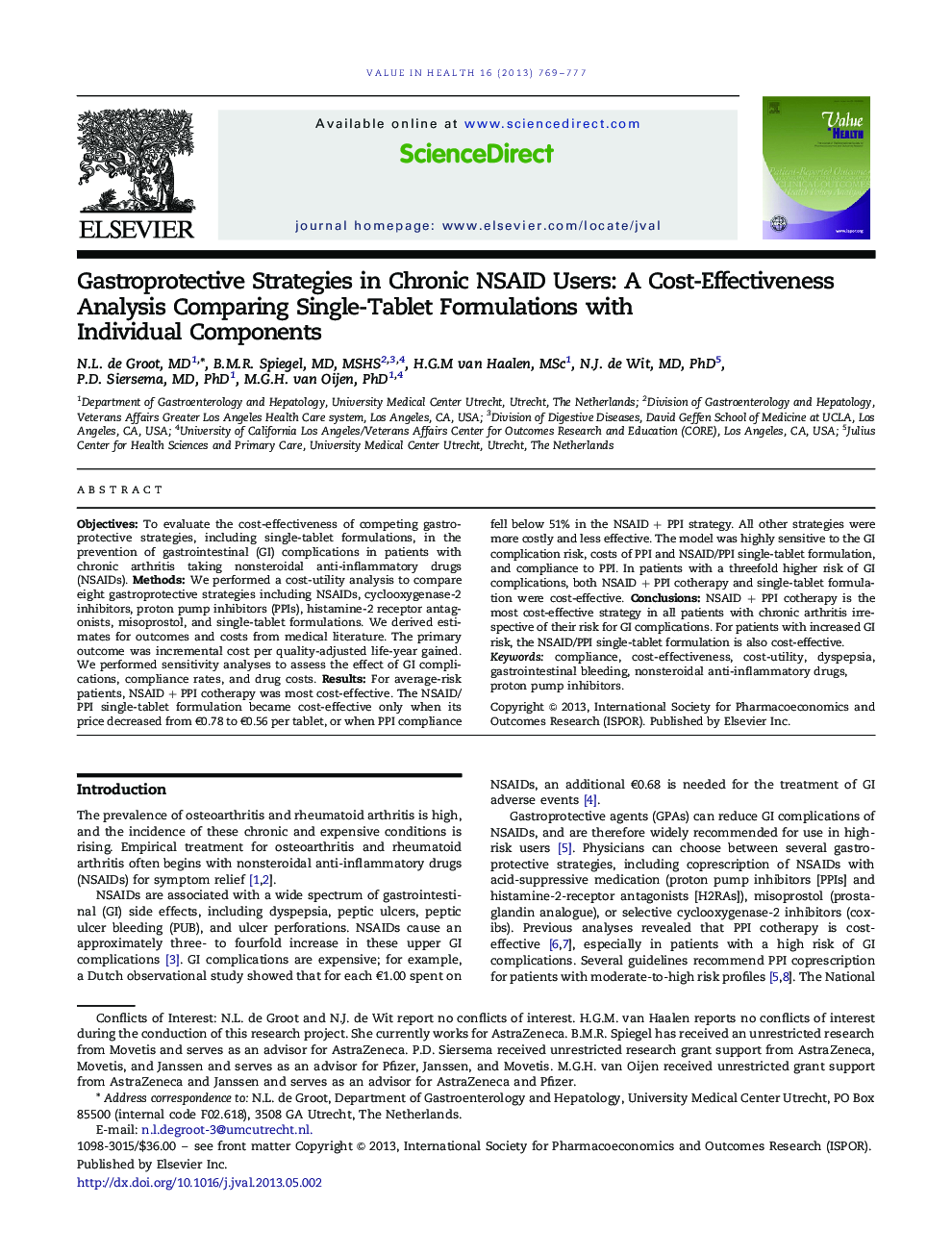| Article ID | Journal | Published Year | Pages | File Type |
|---|---|---|---|---|
| 987520 | Value in Health | 2013 | 9 Pages |
ObjectivesTo evaluate the cost-effectiveness of competing gastroprotective strategies, including single-tablet formulations, in the prevention of gastrointestinal (GI) complications in patients with chronic arthritis taking nonsteroidal anti-inflammatory drugs (NSAIDs).MethodsWe performed a cost-utility analysis to compare eight gastroprotective strategies including NSAIDs, cyclooxygenase-2 inhibitors, proton pump inhibitors (PPIs), histamine-2 receptor antagonists, misoprostol, and single-tablet formulations. We derived estimates for outcomes and costs from medical literature. The primary outcome was incremental cost per quality-adjusted life-year gained. We performed sensitivity analyses to assess the effect of GI complications, compliance rates, and drug costs.ResultsFor average-risk patients, NSAID + PPI cotherapy was most cost-effective. The NSAID/PPI single-tablet formulation became cost-effective only when its price decreased from €0.78 to €0.56 per tablet, or when PPI compliance fell below 51% in the NSAID + PPI strategy. All other strategies were more costly and less effective. The model was highly sensitive to the GI complication risk, costs of PPI and NSAID/PPI single-tablet formulation, and compliance to PPI. In patients with a threefold higher risk of GI complications, both NSAID + PPI cotherapy and single-tablet formulation were cost-effective.ConclusionsNSAID + PPI cotherapy is the most cost-effective strategy in all patients with chronic arthritis irrespective of their risk for GI complications. For patients with increased GI risk, the NSAID/PPI single-tablet formulation is also cost-effective.
